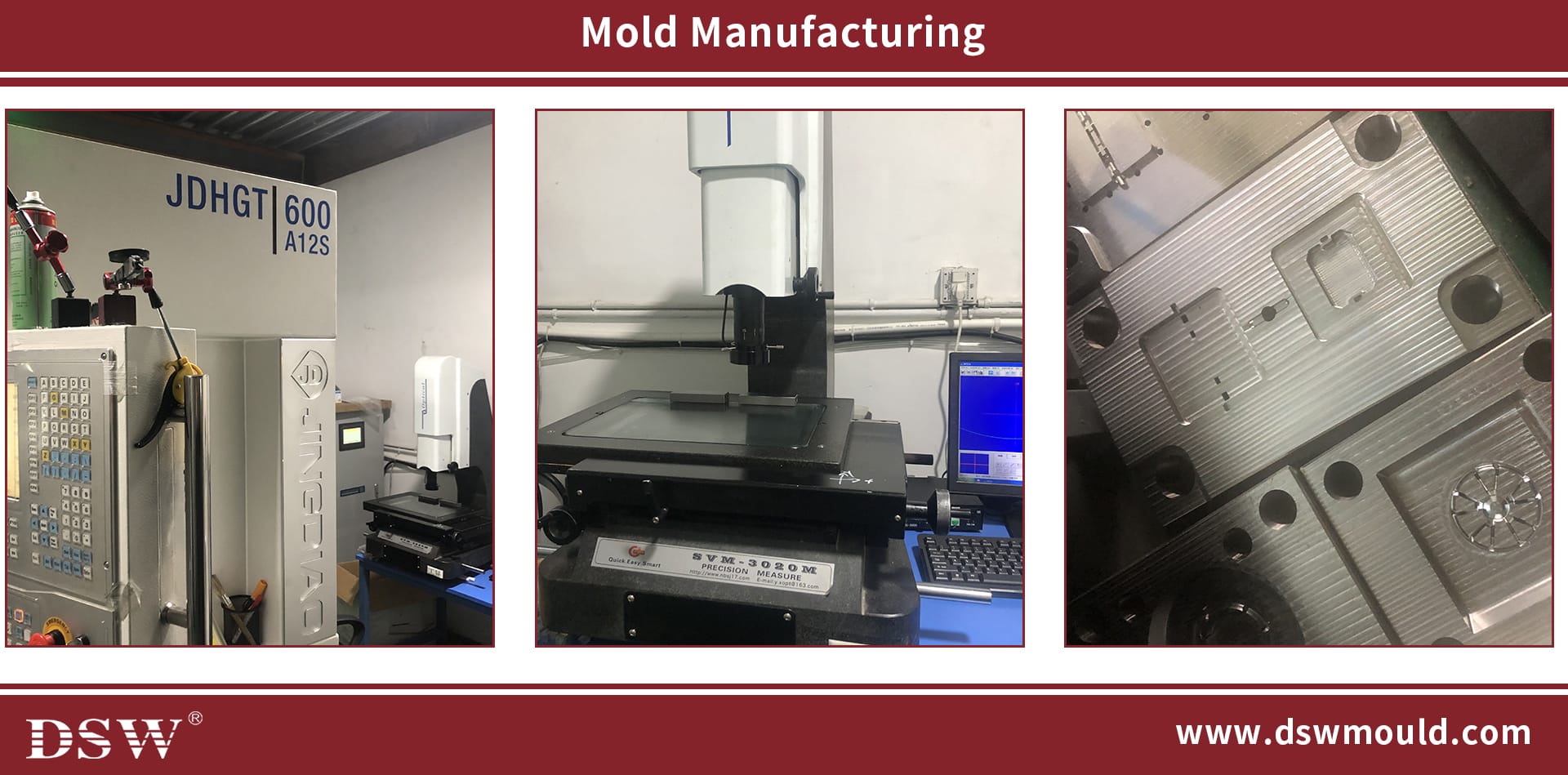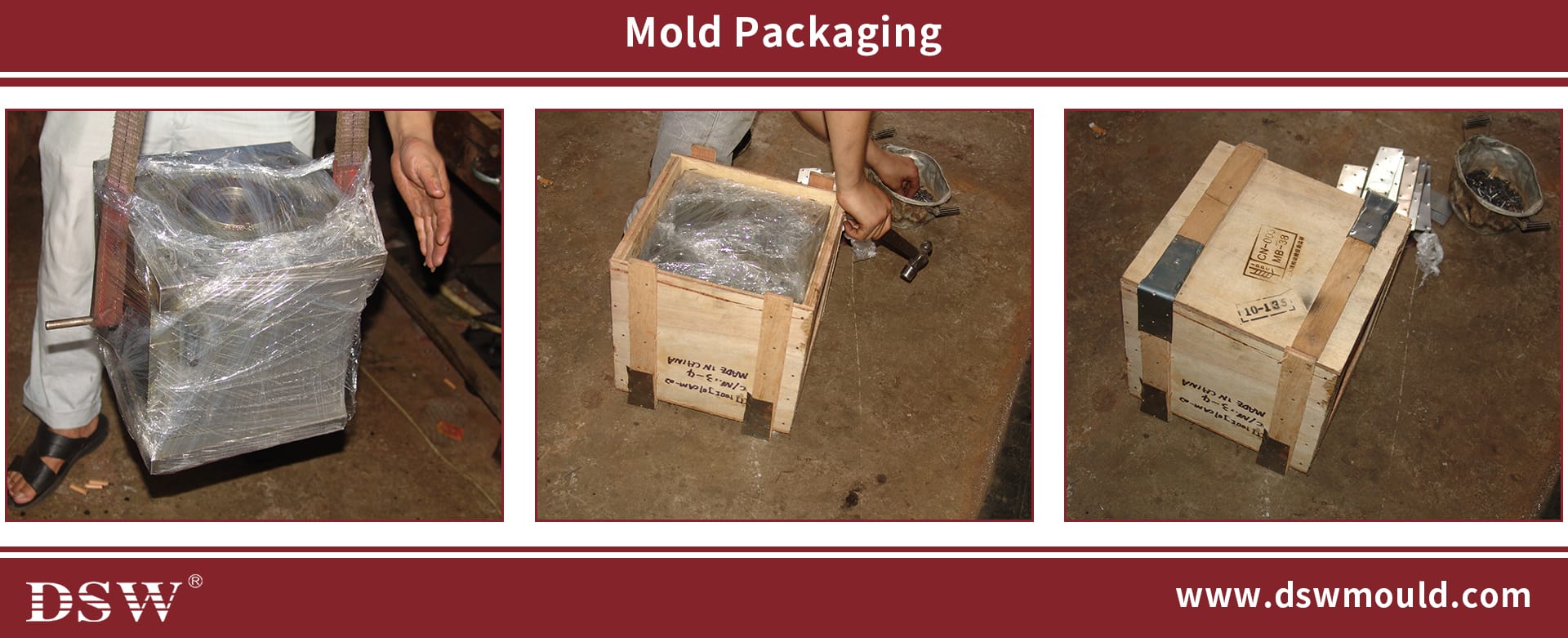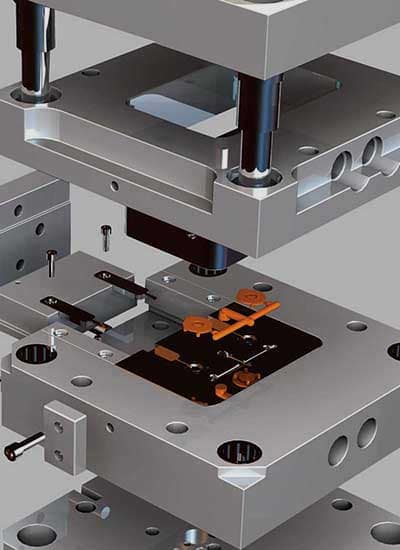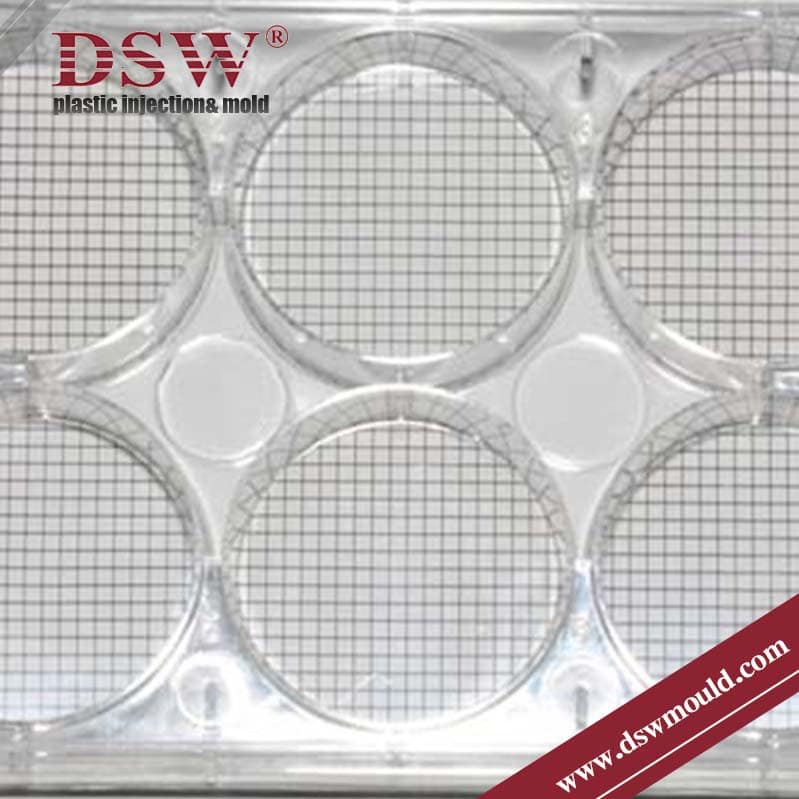Injection Moulding Manufacturer
DSW mould is a China-based contract manufacturer that specializes in injection molding. We use our expert knowledge, cutting-edge technology,and the highest-quality materials to bring your concept to reality.
Our experienced die & tooling department personnel use their decades of combined experience in custom mold design to ensure the most precise tooling results and for plastic injection tooling and prototyping applications.
PLASTIC INJECTION MOULDING PIM001
| Export to(Country) | USA |
| Tool Description | Plastic Injection Mould |
| Material Type | ABS |
| Cavitation | 1 |
| Weight of Plastic Product | 301g/pcs |
| Mould Design by | DSW |
| Mould Construction | Standard |
| Mould Base | LKM |
| Cav.Material | NAK 80 |
| Core Material | 2738 |
| Side Action | Mechanical Slide |
| Ejection | EJ pins |
| Mould Life | 500K |
| Moulded Part Inspection By | Moulder |
PLASTIC INJECTION MOULDING PIM002
| Export to(Country) | USA |
| Tool Description | Plastic Injection Mould |
| Material Type | ABS |
| Cavitation | 1 |
| Weight of Plastic Product | 301g/pcs |
| Mould Design by | DSW |
| Mould Construction | Standard |
| Mould Base | LKM |
| Cav.Material | NAK 80 |
| Core Material | 2738 |
| Side Action | Mechanical Slide |
| Ejection | EJ pins |
| Mould Life | 500K |
| Moulded Part Inspection By | Moulder |

Applications
- Electronics Enclosures: Durable and lightweight casings for electronic devices.
- Automotive Parts: Components like dashboards and housing units.
- Consumer Products: Kitchenware, toys, and protective gear.
With a proven track record of delivering high-quality tools and moulded parts, DSW continues to innovate and expand its offerings to meet the growing demands of global industries.

Injection moulding (U.S. spelling: injection molding) is a manufacturing process for producing parts by injecting molten material into a mould, or mold. Injection moulding can be performed with a host of materials, mainly including metals (for which the process is called die-casting), glasses, elastomers, confections, and, most commonly, thermoplastic and thermosetting polymers. Material for the part is fed into a heated barrel, mixed (using a helical screw), and injected into a mould cavity, where it cools and hardens to the configuration of the cavity. After a product is designed, usually by an industrial designer or an engineer, moulds are made by a mould-maker (or toolmaker) from metal, usually either steel or aluminium and precision-machined to form the features of the desired part. Injection moulding is widely used to manufacture various parts, from the most minor components to entire body panels of cars. Advances in 3D printing technology, using photopolymers that do not melt during the injection moulding of some lower-temperature thermoplastics, can be used for simple injection moulds.















